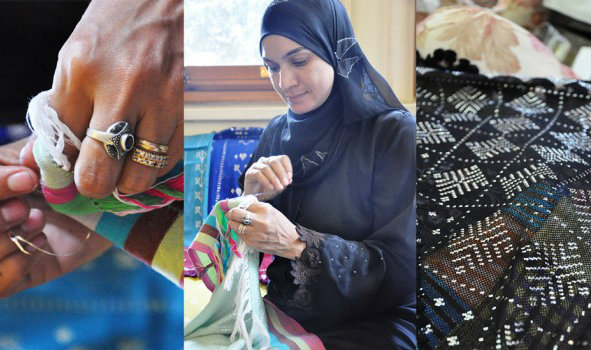Empowering Upper Egypt's Women
The Egypt Network for Integrated Development, supported by the UNDP and the Sawiris Foundation, has rolled out a new initiative designed to quite literally put power in the hands of women living in Upper Egypt's impoverished areas.

It's no big secret that opportunities for women living in rural areas of Egypt are often incredibly limited. Many girls have to drop out of school early in order to contribute to the household income, never getting the opportunity to receive a formal education and then rely on artisanal talents in traditional handicrafts to making a living.
Given the situation in Egypt, an initiative by the name of The Egypt Network for Integrated Development (ENID), supported by the UNDP, is currently working to remedy the situation, with the essential aim of improving opportunities for women and youth in low-income areas of Upper Egypt. ENID is a five-year initiative that works with local NGOs to provide training in four areas; "entrepreneurship, basic services, agriculture development and opportunities for women and youth." It started out with a focus on Qena, which is one of the poorest provinces in the country, but aims to expand to more governorate in need.
The type of training and help that ENID provides is varied. The programme has helped open up preschools, youth centres, and even a mobile health unit in some of the disadvantaged villages in the area. They also focus on helping local artisans improve their skills, for instance implementing a mission to India where they took local women from Qena to learn how to enhance their basic skills as well as promote their work on a more global scale. ENID is currently working on expanding the range of vocational training available to include painting and patchwork, among others.
In the next five years, the organisation, which received help from the Sawiris Foundation among others, is focusing heavily on empowering women and youth in some of Egypt's poorest governorates, emphasizing the importance of literacy, vocational training, and job creation.
- Previous Article TIU - Baky, Beltagy & Ganzoury's New Trinity
- Next Article ADMA Labs: Printing the 3D Revolution in Egypt
























